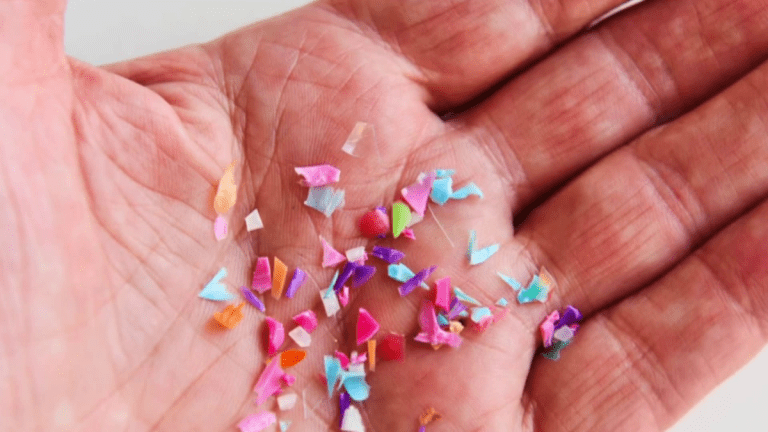
🕒 Last updated on August 5, 2025
Plastic is all around us. It’s in our homes, our schools, our cars, and even in our food and water. But a new report has revealed something shocking: this everyday material is causing serious harm—and it’s costing the world $1.5 trillion every year in health problems and environmental damage.
Plastic Is Everywhere—And It’s Harming Us All
A medical journal has called plastic “the defining material of our age”—but ”not for good reasons. It says plastic is causing disease, injuries, and even death, from babies in the womb to elderly people. The report also points out that plastic pollution is getting worse. By 2060, the amount of plastic produced could triple, and yet less than 10% is currently being recycled.
Currently, about 8,000 megatons of plastic have already been dumped into the environment. That’s the same as about 800 million garbage trucks full of plastic spread across our planet—in rivers, oceans, forests, and even our cities.
Worryingly, plastic is now showing up inside the human body, including in breast milk and brain tissue. Microplastics, the tiny bits that come off plastic products, are entering our bodies through the air we breathe, the food we eat, and the water we drink.
From Factories to Our Bodies—The Life Cycle of Harm
Plastics begin their journey in fossil fuel factories. The majority of plastics are derived from gas and oil. In order to maintain their huge profits, many of these businesses are now turning to the manufacture of plastic as the globe shifts away from fossil fuels for electricity.
These plastics contain a mix of up to 16,000 chemicals, many of which are harmful to humans. These chemicals can enter the body in three main ways: swallowing, breathing in, or through the skin. Everyday items like food containers, drink bottles, and packaging are some of the most common sources.
The dangers of these chemicals are especially serious for unborn babies, infants, and young children. Studies show links to miscarriages, birth defects, lower IQs, learning problems, and childhood diabetes. Adults aren’t safe either. Plastic chemicals have been linked to heart disease, strokes, and even cancer.
Scientists believe the full extent of this damage is still unknown. The health risks may be even worse than current studies suggest. The report states that the number of diseases caused by plastics is likely underestimated, meaning many people are getting sick or dying, but the true reason—plastic exposure—is not being counted properly.
A Crisis That Hits the Poor Hardest
While plastic pollution affects everyone, the report says that low-income and vulnerable communities suffer the most. In many poor countries, plastic waste piles up in huge landfills, open fields, and rivers. People living near these areas are more likely to breathe in toxic air and drink polluted water.
🧱 Finland builds world’s largest sand battery — and it’s heating homes without oil or pollution
Plastic also adds to climate change, pollution, and loss of wildlife. Animals often eat plastic by mistake or get trapped in it. This damages ecosystems and reduces biodiversity—which affects food chains, farming, and even weather patterns.
As world leaders gather in Geneva to discuss a new Global Plastics Treaty, many are hoping for strong action to cut plastic production. However, some countries that make and sell large amounts of plastic, like China, Russia, Iran, and Saudi Arabia, are pushing back. They want to focus on recycling instead of reducing how much plastic is made.
But experts say recycling alone will not solve the problem. Most plastic is not recycled, and even when it is, it can only be recycled a few times before it becomes waste again. The paper makes it obvious that recycling won’t solve this problem.
Brazilian banks race to comply with U.S. sanctions on supreme court justice
This new report also marks the launch of a major new tracking effort called the “Lancet Countdown on Health and Plastics.” This system will monitor global actions to reduce plastic harm and keep pressure on governments to make real changes.
For now, plastic continues to spread across the Earth and inside our bodies—quietly causing harm that adds up to trillions of dollars and millions of lives affected. It is a crisis hiding in plain sight, and one that the world can no longer ignore.